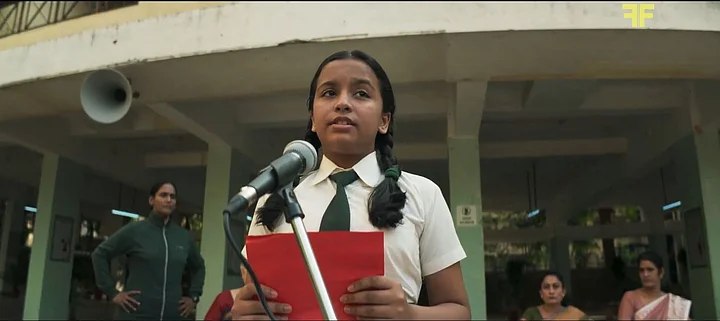It is a truth universally acknowledged, that in India the education of a girl was not as important as that of a boy.
Over the last few decades, we have made significant progress and broken through these underlying prejudices. Governments, NGOs, charities, and private institutions have worked relentlessly to eliminate the remaining barriers which prevent girls from achieving their goals or from dreaming about these goals.
But disparities and inequalities persist. One of the biggest challenges that girls confront even today, particularly those in rural pockets of India, is “periods”. Reports indicate that even today, 1 in 5 girls drop out of school each year when they get their periods. Where discussion of menstrual hygiene itself is a “taboo” the idea of “allowing” a girl to attend school when she is on her period is often considered ghastly. This discrimination impacts the emotional and psychological well-being of these girls.
Often, girls have limited or no knowledge of menstrual health and hygiene. They usually learn about it the hard way around when their friends get their first period or if they spot blood. It is only natural that she then assumes she is hurt or ill. 71 per cent adolescent girls remained unaware of menstruation till menarche. Discriminatory practices at home and rules which forbid her from attending school add to her fears and anxieties.
Education and management of menstrual health take a backseat. Mothers find it easier to make girls skip school. Sanitary pads are considered an unnecessary expense, and gradually girls are forced to drop out of school. It is a harsh reality, and Whisper’s latest ‘The Missing Chapter’ film shines a torch on the wide-ranging repercussions.
Conceptualized by Leo Burnett, the film, set in an all-girls school, shows young girls passing around a mysterious slip of red paper, that appears to satiate their curiosity in some manner. After the paper is passed around in classrooms, corridors, and bathrooms, it eventually makes the rounds at a school assembly as well. During the assembly, one of the girls is caught with the paper in her possession and is demanded to step forward and declare its contents. At this point, it’s revealed to the audience that the paper actually contains information pertaining to periods. In this manner, the audience realizes that this seemingly childish game of ‘Passing the Parcel’ has far-reaching implications, vis-a-vis the girls educating themselves about menstrual health due to a glaring absence of actual education materials relating to the same. Hence the title - ‘The Missing Chapter’.
Studies indicate that nearly 70% of mothers of menstruating daughters in India think that menstruation is dirty. The movie depicts this reluctance around period education when the girl is pulled out of her assembly line, asked to unfold the piece of red paper and chastised for mentioning periods in front of the entire school. It encapsulates the grim reality that even today many girls miss out on school just because they do not know how to manage their period and drives the message around importance of period education at the right time. The lack of acceptance means most women want to keep their period a secret, which results in them not using sanitary hygiene products and missing school as a way to manage menstruation.
To bridge this gap, Whisper introduced its Period education program to educate girls and their mothers on menstrual hygiene. Till date, the brand has educated more than 5.4 crore girls on menstrual hygiene and provided access to free menstrual products. Whisper has also been working on three key areas of driving awareness, acceptance and access to period education. At the same time, it has also been distributing free sanitary kits to promote menstrual hygiene management.
To create a deeper impact, Whisper is working in the grassroots with regional artists to create powerful wall paintings in more than 15 regional styles to help girls understand menstrual hygiene. These paintings, designed to look like the red paper in the film will help young girls understand the nuances of menstrual health hygiene.
Additionally, the brand had given consumers a chance to contribute through the “Buy 1 pack and Help keep 1 girl in school” campaign message. Across the month of March, they launched a limited run of Whisper® packs whose cover featured brand ambassador Bhumi Pednekar. Those packs could be passed on to young girls to help them understand what periods are and how to use a pad. Additionally, the outer covers of those packs could be removed and passed on to these girls.
As part of this movement, Whisper had released The Missing Chapter filter on Instagram – which enabled users to increase conversation around the issue at hand. The missing chapter initiative was read out on live TV in between primetime shows on regional news channels in West Bengal and Tamil Nadu. It was also carried in print editions of regional newspapers.
Whisper has enabled all of you to be a part of this change. It is your turn to do your bit and be part of the movement by adding The Missing Chapter filter on your IG story.
(At The Quint, we question everything. Play an active role in shaping our journalism by becoming a member today.)
